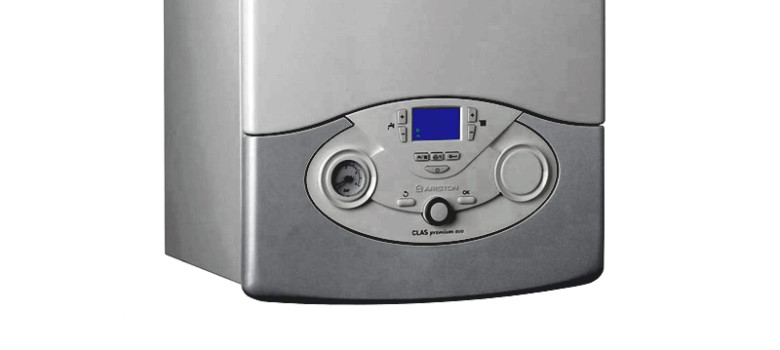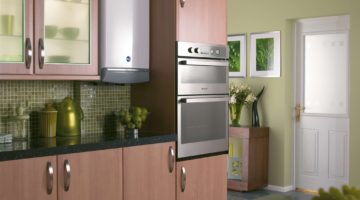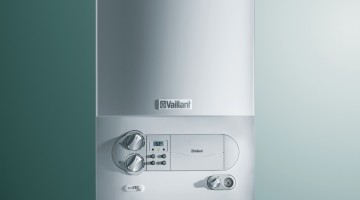
What is a regular boiler?
Regular boilers are the simplest types of boiler and in the past have been installed in the majority of homes in the UK. They create both the hot water required for your central heating system and the hot water that comes out of your taps.
A regular boiler will always require a hot water tank
A regular boiler will always require a hot water tank and may also require a cold water header tank in the loft, depending on whether you are operating a vented or unvented hot water cylinder system.
Basically though, unvented hot water systems (also known as sealed systems) operate under mains pressure, and take advantage of a bubble of air in the cylinder or a separate expansion vessel to allow expansion of the hot water. For this reason no cold water header tank is necessary.
Vented hot water systems also require a cold water tank
Conversely, in a vented hot water system, the hot water uses the vent pipe for expansion (which connects the hot water tank and the cold water header tank); therefore it requires a cold water tank in the roof.
Advantages of regular boilers
Since regular boilers are the most basic type of boiler, they are reliable and cheaper to install than other types.
The other major benefit of having a hot water tank in your heating system is that you can pull hot water from multiple sources at the same time without any loss of pressure, since you have a large store of readily-created hot water.
In addition, most hot water tanks have electric immersion heaters associated with them so you can still get hot water even if your indirect hot water source (i.e. the hot water from the regular boiler) stops entering the hot water tank. This is obviously a benefit over combi boilers, which if broken will not be able to create any hot water at all.
Limitations of regular boilers
Since you are always required to install a hot water tank (and may also need to install a cold water tank, depending on the hot water cylinder type) when you install a regular boiler, they take up far more space than a combi boiler. This means they may not be suitable for particularly small properties.
Another issue with having a hot water tank cylinder is that as soon as you use all the hot water, then the boiler (indirect heating system) or immersion heater (direct heating system) will need to be switched on to replenish the water.
The final issue is that since you are storing hot water, there will obviously be heat lost from the hot water cylinder. Conversely combi boilers create hot water on demand, so there are no heat loss issues with these.
Condensing regular boiler
As with the other types of boiler, any open vent boiler bought today will be a condensing open vent boiler, and will capture the latent heat in the exhaust fumes of the boiler with a heat exchanger, so less fuel is used to produce the same amount of heat.
Regular boilers with solar thermal
Like system boilers, regular boilers are also compatible with solar thermal solutions. By creating hot water using the sun’s rays, you can take advantage of the RHI scheme.
Depending on its age, replacing an old boiler with a new equivalent system should result in large savings to your energy bills. This is not only a result of the condensing element of the regular boiler, but also of the technical advances that have led to increased fuel efficiency, meaning more of the fuel is converted to useful heat in the boiler.
Benefits
- Many of the older boilers that will now be getting replaced are regular boilers and the process of making a like-for-like swap is relatively straightforward.
- The water can be drawn through any number of taps at the same time, with no loss of pressure.
Limitations
- Once the hot water in your hot water storage cylinder has been used up, you will need to wait till it heats up again.
- As the water that comes to your taps will come from a storage tank, you may find that you have only one suitable outlet for mains fresh drinking water.
- Regular boilers require a hot water cylinder and two cold water tanks (that need to be stored in the loft), so they take up a lot of space.
Cost
- It will cost about £1600 + VAT to replace an old regular boiler with a new energy efficient regular boiler.
Installing a new boiler
Are you thinking about getting a new boiler? We have scoured the country for the best tradespeople, so that we can make sure we only recommend those we really trust.
If you would like us to find you a local installer to install a new boiler in your home, just fill in the form below and we will be in touch shortly!












Is the water that comes to your taps MAY POSSIBLY come from a storage tank, you may find that you have only one suitable outlet for mains fresh drinking water.
Just correct you on your advice that expansion takes place in the open vent, it doesn’t, It takes place in the cold feed.